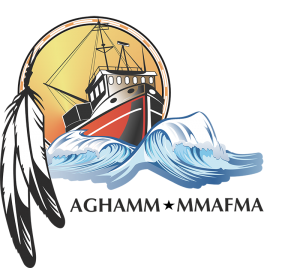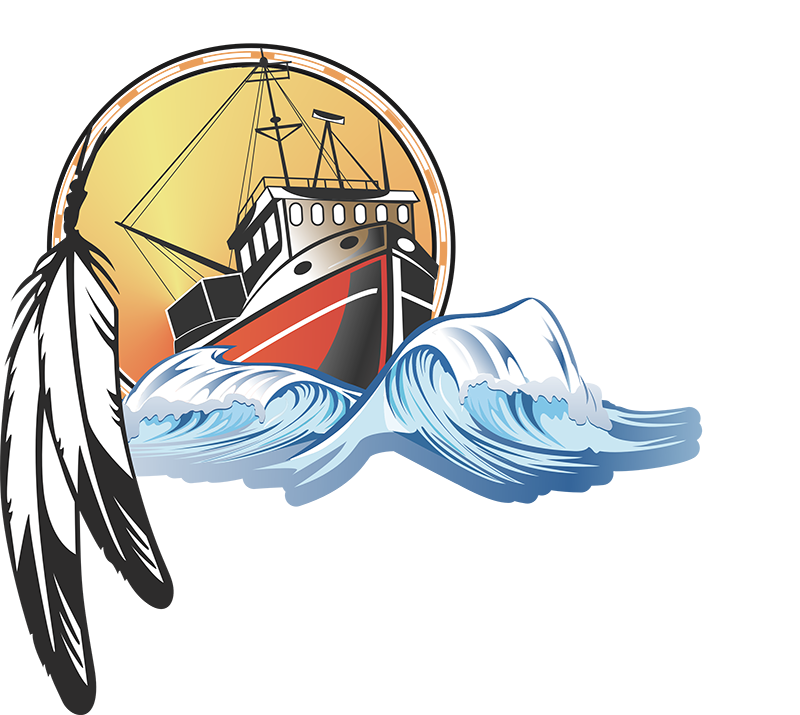Who are we?
Mission
MWIFMA’s mission is to promote the sustainable management and conservation of aquatic and ocean ecosystems in the territories and areas of activity of the Mi’gmaqs of Gesgapegiag, the Mi’gmaqs of Gespeg, as well as the Maliseets of Wolastoqiyik Wahsipekuk, while promoting their interests, their participation in co-management processes and the diversification of their fishing and aquaculture activities.
Vision
MWIFMA aims to become a key partner in the collaborative management of natural aquatic and oceanic resources based on conservation principles, in order to ensure the sustainability and integrity of ecosystems for generations to come. MWIFMA is determined to constitute a hub of exchange and consultation for its members, while promoting the development, autonomy and innovation in Mi’gmaq and Maliseet fisheries, while favoring the integration of indigenous traditional knowledge in the scientific approach.
Name and logo

Fisheries management relates to the science of exploitation of living organisms, animals and plants, in aquatic and marine environments, and includes not only fisheries, but also aquaculture. The concept of fisheries management integrates not only the harvest activities, but also the conservation, restoration and sustainable management of aquatic and oceanic resources and ecosystems.
MWIFMA’s logo includes two eagle feathers, representing the Mi’gmaq First Nation and the Maliseet First Nation; a boat navigating on the sea –the instrument of work for most fishers; with a rising sun in the background, sign of a new day for aboriginal fisheries management in the Gaspesie and Bas-Saint-Laurent regions.
Context
In 1999, the Supreme Court of Canada issued the Marshall decision, upholding the right, under the Peace and Friendship Treaties of 1760 and 1761, to hunt, fish and gather to ensure a level of reasonable subsistence. The Marshall decision affected 34 Mi’gmaq and Maliseet First Nations in New Brunswick, Prince Edward Island, Nova Scotia and in the regions of Gaspésie and Bas-Saint-Laurent, Quebec. Subsequently, the Department of Fisheries and Oceans (DFO) adopted a series of post-Marshall initiatives to negotiate fishing agreements with First Nations. The development of MWIFMA is based on one of these initiatives: the Aboriginal Aquatic and Oceanic Resources Management Program (AAROM), which stems from DFO funding and which aims to strengthen technical capacity in the management of aquatic and ocean resources. MWIFMA also has a history of the activities of the Atlantic Integrated Commercial Fisheries Initiative (AICFI). In addition, the three member communities of MWIFMA have experience with the Aboriginal Fisheries Strategy (AFS), AICFI, and they were also holders of the initial Post-Marshall Initiative.
